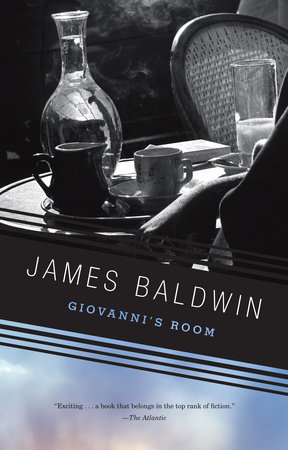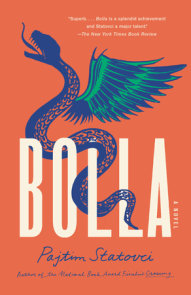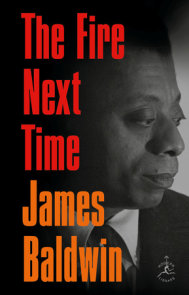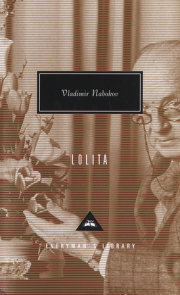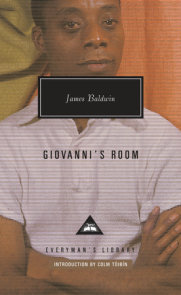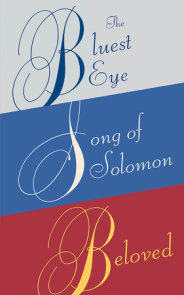READERS GUIDE
Reading Group GuideGiovanni’s Room
By James Baldwin
Introduction
Heralded as a masterpiece and widely regarded as a touchstone of queer literature, James Baldwin’s 1956 novel Giovanni’s Room tells the story of a young American man’s poignant love affair in 1950s Paris. Addressing questions of sexuality, morality, and nationality with an unflinching gaze and a sharp pen, Baldwin crafts an achingly honest tale of love, death, and desire that is raw, emotional, and absolutely unforgettable.
When David left America, he thought he would be able to find freedom on the foreign streets of Paris. Now his money is running low; his girlfriend, Hella, is traveling through Spain contemplating his marriage proposal; and his father’s letters are urging his return. Unsure of his future, he has a chance encounter with Giovanni—a beautiful Italian bartender who is in Paris to mourn his own past—that leads to a reluctant yet passionate affair, one that will teach David that even the ocean isn’t wide enough to escape the memories that he’s spent years trying to outrun.
Caught between two lovers, torn between convention and passion, and hastened by Hella’s return, David struggles to negotiate his origins, identity, and sexuality to make a decision that will shape his future. Told over the course of one tormented night that will end in tragedy, Giovanni’s Room is a portrait of longing and a warning of the dangers of love suppressed that is equally moving, devastating, and brilliant.
The following questions are designed to enrich your reading group’s discussion of Giovanni’s Room. We hope they encourage thoughtful conversation and deepen your understanding of James Baldwin’s modern classic.
Questions and Topics for Discussion
1. Giovanni’s Room is told through David’s intimate, first-person perspective as he looks back on his life and reflects on his love affair with Giovanni. Why do you think Baldwin chose to tell the story in this way? As a reader, how did this confessional form affect your experience of the novel? Imagine if the story were told from another character’s perspective. How would it differ?
2. Giovanni’s Room is set in 1950s Paris. How do the French dialogue and allusions to the state of postwar Europe add to the realism of the novel and evoke the atmosphere of the city? In what ways does this setting reflect the novel’s central themes and moods?
3. Throughout the novel, David often returns to the image of his reflection, which seems to shift as he recounts his love affair with Giovanni. In chapter one, what does David see in his reflection? By the end of the novel, how has his perception of himself changed?
4. In chapter one, David introduces readers to the story of Joey. Who is Joey, and why is he important to understanding David’s relationship with Giovanni? Why did David decide to keep this experience a secret, and what do you think this omission reveals about his character?
5. The characters in Giovanni’s Room live in a community of expatriates who met after arriving in Paris. Where did they come from, and why did they decide to flee their homelands? Do any of them find what they are looking for in Paris?
6. Giovanni’s dire fate is revealed in the early pages of the novel. What feelings arose in you, knowing from the beginning how Giovanni’s story would end? Do you think that this knowledge impacted your perception of the plot as it unfolded? Why might Baldwin have chosen to structure the story in this way?
7. David’s relationship with his father is troubled by the feeling that his father left him unprepared to become a man. How does David’s family define manhood, and how does this definition conflict with David’s own manifestations of masculinity? Do you think David’s father is to blame for his trouble reconciling the two?
8. Much of Giovanni’s Room takes place in the gay bars and queer spaces that compose the novel’s Parisian landscape. How does this atmosphere compare to that of the United States at this time? Was there ever a setting where David felt truly secure in his sexuality?
9. In the novel, numerous characters face stereotypes about their culture and countries of origin. Share your own experience of traveling away from home. Have you ever felt people made assumptions about you based on where you are from? How did you react?
10. Religion and morality are topics that Baldwin addresses in much of his writing, and Giovanni’s Room makes notable references to the Bible, including the Garden of Eden, the curse of Ham, and Judas’s betrayal. How does religion complicate David’s understanding of his own sexuality and his relationship with Giovanni?
11. Through David’s narrative, Giovanni’s Room reveals the ways that external views on love and relationships can become internalized, leading to shame and alienation. Where does the pressure to marry a woman and have children come from, and how does David resist or fall victim to this norm? Have you ever felt pressure to reach a milestone, regardless of whether it was something you truly desired? Share your own experience of confronting those expectations.
12. The novel’s title comes from the maid’s room that Giovanni and David share during their love affair. Describe this setting. How does David’s perception of it change as his relationship with Giovanni unravels? In the end, why does David believe it’s imperative to escape Giovanni’s room?
13. Sex is used by many of the characters as an avenue to avoid loneliness, find power, and escape lingering doubts about their sexuality. Do you think the novel portrays any healthy sexual or romantic relationships?
14. Describe David and Hella’s relationship. Why does he propose to Hella, and why, despite her critiques of marriage, does she agree?
15. Recall Giovanni and Hella’s first meeting. How did this play out for David, and what events did this encounter set in motion?
16. Reflect on the characters of Jacques and Guillaume. Who are they, and what is their relationship with David and Giovanni? How would you characterize the dynamic between them? Supportive and encouraging? Exploitative and dangerous? A bit of both? What privileges do Jacques and Guillaume have that Giovanni and David, as well as Yves and Pierre, do not, and how do they use this power?
17. Return to the novel’s closing scene. What is inside the envelope, and why does David tear it to pieces? Do you think it’s significant that some of the pieces returned to David? Ultimately, do you think he will ever be able to escape what has happened to Giovanni?
Suggested Reading
Another Country by James BaldwinJust Above My Head by James Baldwin
Tell Me How Long the Train’s Been Gone by James Baldwin
Countries of Origin by Javier Fuentes
I Will Greet the Sun Again by Khashayar J. Khabushani
Sula by Toni Morrison
Rainbow Milk by Paul Mendez
All This Could Be Different by Sarah Thankam Mathews
The Fortune Men by Nadifa Mohamed
Nightcrawling by Leila Mottley
Romance in Marseille by Claude McKay
The Heart’s Invisible Furies by John Boyne
The Great Gatsby by F. Scott Fitzgerald









